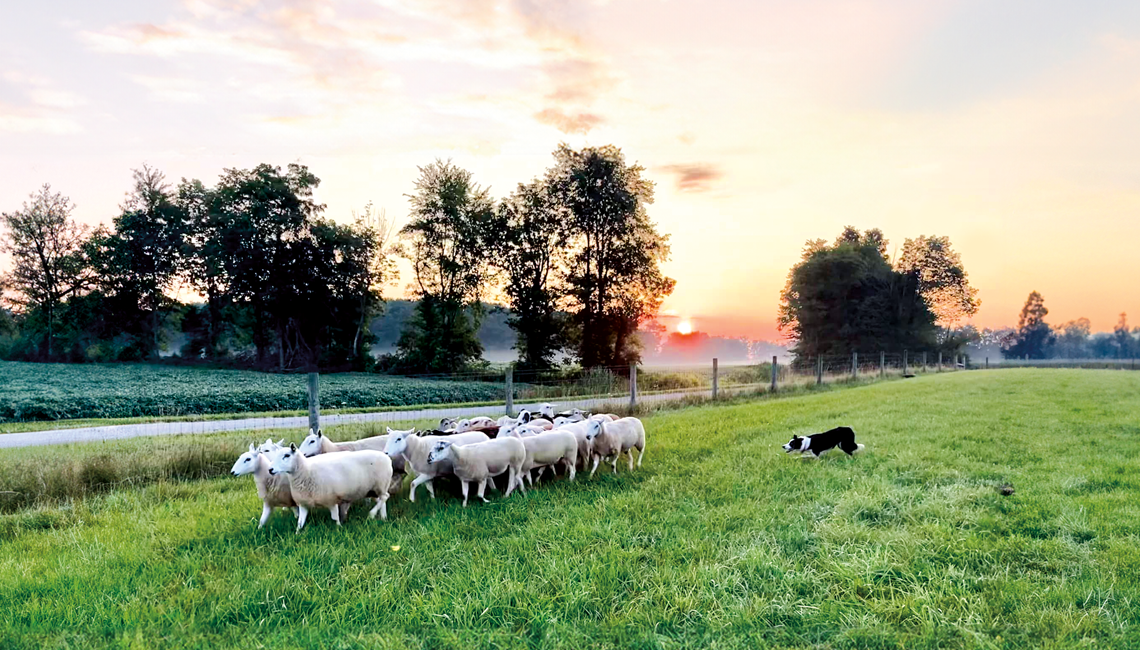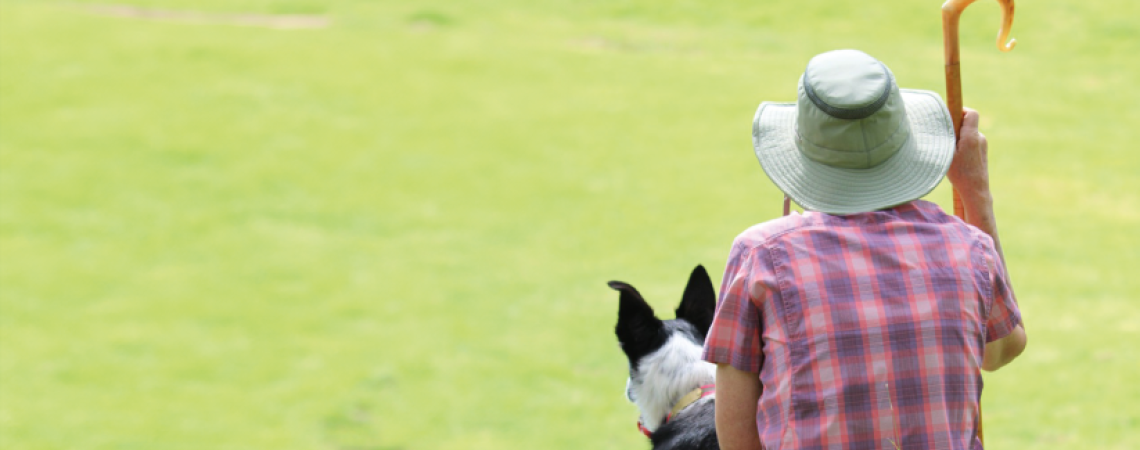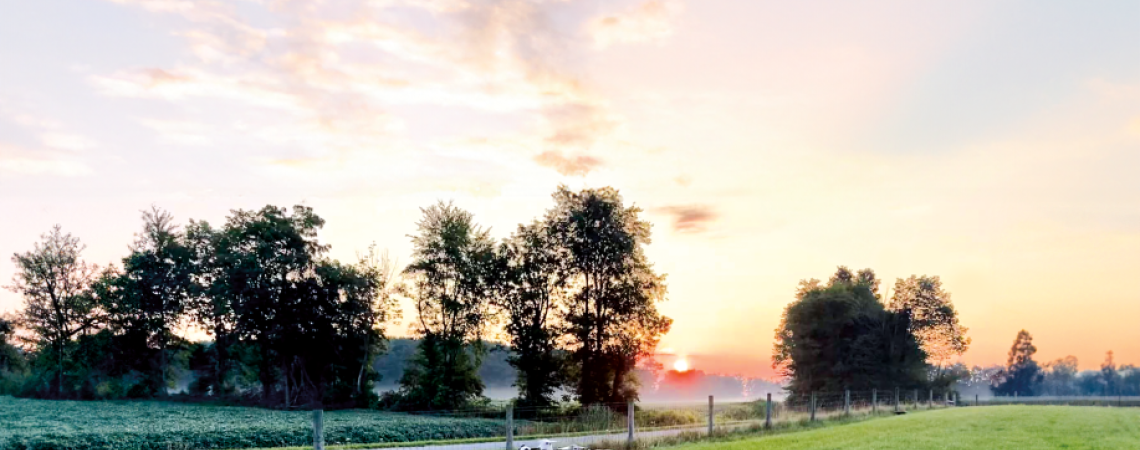Beth Murray didn’t quite know what she was getting into when she adopted her first border collie, a rescue, from the Parkersburg (W.Va.) Humane Society. “At the time, I had a horse, and since (the dog) was young and wanted to herd something, she herded the horse,” says Murray, a retired veterinarian and a member of Lancaster-based South Central Power Company. “The first time she was kicked, I thought she would smarten up.”
After a couple more incidents, however, Murray decided she’d better divert the dog’s attention, or else. While border collies are even-tempered and eager to please, Murray says that they don’t always make good household pets, because if they don’t have another outlet, they will herd household pets or children (or horses).
So Murray soon had a small flock of sheep on her farm near Lynchburg, and after watching their interaction, she decided to get into competitive sheepdog trials, a sport in which handlers direct their dogs to move sheep around a field and into enclosures.
South Central Power member Beth Murray found a love of training herding dogs after adopting a border collie with natural herding instincts.
The breed’s natural herding instincts are sharpened by training and practice in herding sheep or cattle. Murray says that “some people send their dogs to trainers, but I really enjoy training them myself.”
She now has five smooth-coated border collies — and a bevy of awards and recognitions. Three of the dogs — Rena (the youngest, named for Murray’s sister because “they share the same temperament”) and littermates Audrey and Petra — participate in trials with Murray, and all three qualified to participate in the national championships last year. Her two oldest dogs have retired from top-level competition, but since Pi, now 12, can still do the easier novice-level classes, the dog has a special role: giving Murray’s handler student an experienced dog with which to learn the skills. For a beginning competitor, Murray says, “training is hard with a puppy. You know nothing and the dog knows nothing.”
She says it takes about four years for a dog and handler team to be good enough to compete in open classes, the most challenging.
There are five commands a sheepdog must learn: basically, go left, go right, stop, go to the sheep, and a recall signal meaning “That will do.”
While handlers are permitted to use voice commands, they typically use whistles or hand signals to direct the dogs. “If the dog is far away, he can’t hear your voice unless you yell, and yelling sounds to him like anger,” she says. “He thinks he has done something wrong and gets anxious or confused.”
So five different whistle sounds convey the commands without causing stress. Murray says that the dogs “learn your style, read your body language, predict what you want them to do.” But she also notes that some sheep are smart enough that “they can size up dogs. They learn what they can get away with.”
In each round of competition, the dog must, within a certain time frame, move a herd of sheep from one pen to another, driving the sheep around a post or two on the way. In the more advanced classes, the dog must also separate one sheep, marked by a ribbon or a spray of paint across its fleece, from the rest of the herd and get it into a different pen.
Murray says there are lots of variables that can make a difference during competition; sometimes a competitor’s turn comes in the afternoon when the sheep are hot and tired and therefore less cooperative, or other times you just have bad luck. Usually, though, when a team makes a mistake, “99% of the time it’s the handler’s fault, not the dog’s,” she says.
Murray says competing in sheepdog trials requires a lot of learning for both handler and dog. The process involves training, watching successful handlers, and, through persistence, finally being able to compete with top handlers and their dogs. “There’s nothing like that moment when your dog gets it, when they’re really partnering with you,” she says. “Dogs have such a desire to do what you want them to, and on a day when you and your dog work well together, get a good group of sheep, and the stars are aligned just so, you can actually beat that top handler that day. But the big prize is always going home with your wonderful dogs.”











